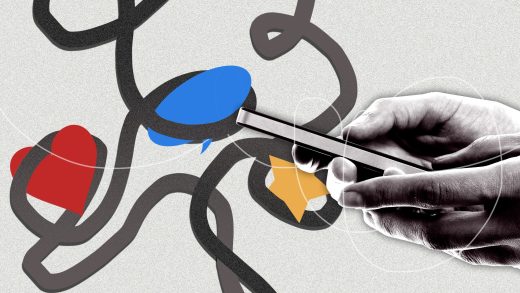The Twitter rivals are barely making a dent in Elon Musk’s business
When Elon Musk began to transform Twitter into X, a slew of people who had either once worked for the platform or were simply ardent users launched various efforts to build better alternatives. One of them was Gabor Cselle, who from 2014 to 2016 worked as a group product manager at Twitter, tweaking the timeline and new-user experience.
Cselle’s product, T2—which later rebranded to Pebble—was designed to be a kinder, safer alternative to Twitter. Trust and safety were paramount to Pebble, which gained 20,000 users, 3,000 of whom logged on daily at its peak. But it didn’t last long. Launched in December 2022, it’s already shutting down at the start of next month.
Cselle did not respond to an interview request for this story, but he told TechCrunch “the competitive landscape evolved faster than we thought.” Loyalty to Twitter was also stronger than many believed it would be, even as Musk gave users a host of reasons to leave.
Pebble is far from alone in its struggle to make a dent in X’s dominant market position, even as the app has lost one in eight users in just a year, bringing its total base down to 121 million. But those figures are still far above upstart competitors like Cohost (162,000 users), Bluesky (1 million users) and Mastodon (1.7 million users).
“The special thing about Twitter is that there are unique aspects of its different features and platform organization that just can’t quite be replicated by competitors,” says Jess Rauchberg, assistant professor of communication technologies at Seton Hall University. “We need to understand that competitors like T2, Bluesky, Mastodon, Spoutible, and others will never be another Twitter, even if that’s what these respective platforms promote themselves to be.”
Christopher Bouzy, a longtime, high-profile Twitter user who launched his own competitor, Spoutible (which has 240,000 users) in February 2023, worries that many of X’s inchoate rivals will see a fate similar to Pebble’s. “I do think folks are expecting too much too fast,” he says. “I do believe that Twitter is going to be irrelevant, quicker than folks believe. But it’s not going to happen within months.”
Instead, Bouzy believes that a yearslong timeline is more realistic, and that competitors should plan and build their businesses with that in mind.
The rise of, and attention on, Threads, Meta’s attempted Twitter killer, gave people an unrealistic idea of how quickly a social media platform can grow. And even Threads has struggled to keep its audience over time. “In the beginning, I made a lot of assumptions,” Bouzy says. “Threads did us a huge favor because what Threads was able to do was get a lot of users quickly. But then they plateaued.”
Bouzy says that helped prove his hypothesis: “You cannot take a bunch of users and throw them together and expect to re-create Twitter. It just does not happen that way.” Instead, organic, slower growth is necessary. Whether the people who launched platforms with the idea of taking market share from Twitter while it was down-and-out have the patience to do that is another question.
Whether users have an appetite to make the leap is also up for debate. “We see a lot of adaptation,” Rauchberg says. “Maybe some are moving to other platforms but keeping a foot in the Twitterverse.”
(21)



